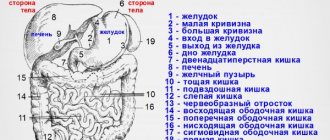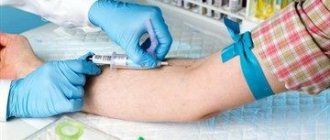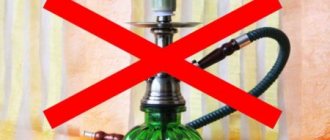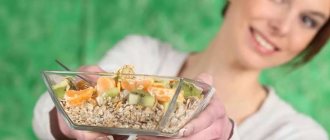When collecting test material for analysis, certain rules are followed to ensure the accuracy of the result, so many are interested in whether it is possible to smoke before donating urine? It is important to take care of yourself and periodically monitor blood and urine levels in your body; laboratory monitoring of blood plasma and urine is also necessary to confirm urolithiasis, pathologies of the bladder, pyelonephritis and to identify the inflammatory process in the genital organs. However, in order for the results to be accurate, before taking the tests, they review their diet and exclude from it everything that affects the response of the study.
What should you not drink or eat before collecting urine?
It is strictly forbidden to drink drinks that contain large amounts of sugar or sweeteners. Patients are advised to avoid drinking alcoholic beverages. The consumption of berry juices and carbonated drinks is also prohibited. A person should also give up tea and coffee.
Leading experts have determined a list of products that are prohibited from being consumed beforehand. A few days before the examination, patients are recommended to exclude from the diet:
- sauces;
- fermented milk products;
- fatty foods;
- seasoning
The night before, a person should give up pickled and salty foods. Citrus fruits should be consumed in minimal quantities. Beets and carrots should also not be consumed, as they lead to coloration of the biomaterial. If the diagnosis is carried out in children under one year of age, then it is strictly forbidden to introduce new complementary foods.
Drinking before taking the test
It's better to drink water. The drinking regime remains normal or slightly increased (for example, when collecting daily urine).
You should refrain from:
- from strong coffee and tea
- from cola, energy drinks
- necessarily from alcoholic drinks (even very weak and strong the day before)
- too sweet drinks .
What should you not eat before the test in certain cases?
The list of products that are prohibited for consumption is determined in each specific case.
Examination according to Nechiporenko
The Nechiporenko study is carried out only on an empty stomach. That is why patients are prohibited from eating 6-8 hours before the examination. The exception in this case is patients who, due to their health, are prohibited from refusing food for a long time. This fact must be reported to the laboratory assistant. The person must provide a list of foods that he consumed the day before.
Zimnitsky test
Submission of biomaterial for the Zimnitsky test is not carried out on an empty stomach. That is why a person must eat first. In this case, it is not recommended to violate the usual drinking and nutrition regimen.
Biochemical examination
Biochemical diagnostics requires exclusion from the diet the day before of plant foods that contain ascorbic acid in large quantities.
Patients should avoid sea buckthorn and rose hips. Consumption of black currants and bell peppers is also prohibited.
Examination for the amount of adrenaline and norepinephrine
A few days before the planned examination, patients are prohibited from eating dishes prepared with vanilla. You should not consume drinks that contain caffeine.
Patients should try to limit their intake of licorice-based medications. It is not recommended to eat hard and soft cheeses before the test. Doctors advise avoiding foods such as walnuts and bananas. It is not recommended to consume horse chestnuts and other products that contain amines.
Testing for sugar levels
If diagnostics are carried out on the amount of sugar, then you need to give up foods that are saturated with carbohydrates. Consumption of baked goods and sweets can lead to an increase in the amount of glucose in the body.
Which one is allowed?
Doctors allow the following types of drinking before the test:
- purified still water;
- compote;
- weak tea.
Reference! It is prohibited to consume any water or other drink that contains preservatives, dyes, chemical additives, or pigments.
These include:
- concentrated juice (beets, carrots),
- soda,
- lemonade,
- coffee,
- energy.
Any type of water obtained naturally (without chemicals) is not prohibited before being analyzed. If it contains a large amount of pigments, they can leak into the urine. This will change its color.
Then it is impossible to determine the result with accuracy. For example, drinking beetroot juice makes it reddish. The same effect occurs with gross hematuria (excretion of red blood cells or blood into the urine).
Carefully! Alcohol is prohibited before any laboratory analysis.
Medicines prohibited before urine collection
If possible, patients are advised to stop taking medications. If there is a need to take medications, the patient is advised to reschedule the examination. In some cases, a specific medication is replaced with an alternative option.
If it is impossible to stop the medication, then the laboratory assistant must be provided with information about the specifics of its use. The list of prohibited medications directly depends on the characteristics of the study being conducted.
General urine examinations
Before the study, it is strictly prohibited to take medications that have a diuretic effect. Patients should also refuse treatment with extra-renal drugs. This is explained by the fact that these medications inhibit the readsorption of salt and water in the kidney canals, which leads to an increase in their excretion in urine. Two days before the examination, you should stop taking diuretics.
Biochemical examination of urine
It is strictly prohibited to take medications that are made on the basis of ascorbic acid. A person should ensure that no more than 30 milligrams of vitamin C per day enters his body. With an increase in the amount of this microelement in the body, an excess of oxalates in the biomaterial may be observed, which will cause unreliable results.
When there is an excess of vitamin C in the body, various diseases of the digestive tract, urinary tract, etc. are diagnosed.
Examination of urine for the amount of adrenaline and norepinephrine
Before conducting the study, it is strictly prohibited to take medications based on caffeine, ethanol, rauwolfium, or nitroglycerin. This is explained by the fact that these drugs increase the amount of adrenaline and neurotransmitters.
Test for the amount of sugar
Treatment with corticosteroids is strictly prohibited. The patient should stop taking caffeine-containing medications. The use of Diuretin and Phenamine is strictly not recommended.
Protein testing
It is not recommended to take medications whose main component is penicillin. The patient must avoid sulfonamides and salicylates. Treatment with cephalosporins before the examination is strictly prohibited.
This is explained by the fact that during treatment with these medications, there is an increase in the amount of protein in the body, increased reabsorption of ammonia and increased diuresis.
Taking medications before the test
Like food, medications affect the composition of urine. Some of them can seriously distort test results . If you take medications on a regular basis, you should notify your doctor. Medicines that you take periodically or constantly, but on your own initiative (for example, vitamins) should be abandoned.
Medicines that affect the biochemical composition of urine :
- Diuretics – affect the density, color and composition of salts, acidity
- Antibiotics , antifungal drugs - increase protein content
- Preparations containing caffeine, thiamine, theophylline, rauwolfia, nitroglycerin, ethanol will change the hormone levels
- Methionine, acetylsalicylic acid, epinephrine, nicotinamide - affect acidity
- Phenazone, sulfalene, sulfadimethoxine, streptocide - will give a pathological brick-red color
- Vitamin B12 – will make urine orange.
Note! Discontinuation of drugs should be agreed with a doctor. It is unacceptable to cancel previously prescribed treatment on your own.
Are there any special restrictions during pregnancy?
After registration, pregnant women are advised to regularly test urine. This makes it possible to assess the condition of her body and the development of the baby. Before conducting the study, it is strictly forbidden to take food products whose action is aimed at changing the smell or color of the biomaterial. Patients are not recommended to take multivitamins the day before the examination.
There are no special restrictions for pregnant women, but they must adhere to the general rules for collecting material. Before the procedure, patients are recommended to carry out hygiene procedures using a weak soap solution.
This will eliminate mucus and leukocytes from the biomaterial. Urine collection for general analysis is carried out in the morning. In order to conduct a full laboratory examination, a woman needs to provide 100 milliliters of urine.
When should you stop?
To ensure that filtration occurs normally and there is no excessive increase in water relative to soluble substances, it is recommended to stop drinking liquid 1 hour before the analysis.
Moreover, the last volume drunk should be no more than 200 ml. These are the data recommended for emergency urine collection.
To get the best results and eliminate the possibility of unreliable data, it is recommended to take the morning portion. The last intake of H2O should occur in the evening, before bed . Then the urine will be most concentrated.
What is allowed to eat?
You are allowed to eat a large number of foods before the tests. A woman can prepare porridge dishes with the addition of butter and vegetable oil.
Patients are also allowed to consume lean meat and fish. You can eat vegetables and fruits that do not affect the color and smell of urine. Patients are recommended to consume mushrooms, unleavened pastries and bread.
Diagnosis of biomaterial is a fairly important diagnostic procedure, with the help of which a variety of diseases are determined. In order to get reliable results, patients need to know what to eat and drink before the examination.
It is also necessary to identify prohibited medications before carrying out diagnostic measures. The list of food products and medications directly depends on the characteristics of the biomaterial being studied.
How long does alcohol stay in the blood after beer?
The rate of ethanol breakdown after drinking beer depends on the physiological characteristics of each individual person. In men with greater body weight and good health, this process occurs faster. People with a thin build, suffering from chronic pathologies or alcohol addiction need more time to cleanse the body of alcohol.
The alcohol contained in beer is eliminated quite quickly due to the property of the drink to stimulate the kidneys. The sobering process is accelerated due to increased diuresis. But as a result of combining foamy drinks with stronger drinks, alcohol will circulate in the blood much longer.
A man weighing 80 kg who drinks 1 liter of weak beer will have alcohol in his blood for about 4.5 hours. When drinking 2 liters of beer, this time increases to 7 hours, and after 3 liters - to 9.5 hours. The body of a man weighing 65 kg will process this amount of alcohol an hour longer. The body of a woman weighing 60 kg will remove the alcohol contained in one liter of beer in about 5.5 hours.
Drinking beer
After ethanol is eliminated, its breakdown products will still be present in the body. And they can change test results. This is why drinking beer the day before donating blood can hardly be considered the right decision.










